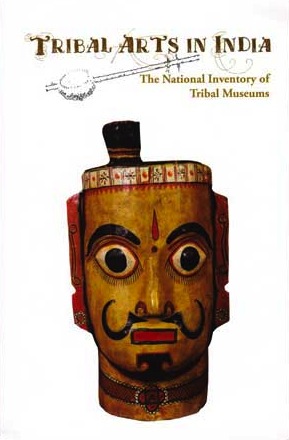Adivasi traditions and practices pervade all aspects of Indian culture and civilization, yet this awareness is often lacking in popular consciousness, and the extent and import of Adivasi contributions to Indian philosophy, language and custom have often gone unrecognized, or been underrated by historians and social scientists.
Although popular myths about Buddhism have obscured the original source and inspiration for it’s humanist doctrine, it is to India’s ancient tribal (or Adivasi) societies that Gautam Buddha looked for a model for the kind of society he wished to advocate. Repulsed by how greed for private property was instrumental in causing poverty, social exploitation and unending warfare – he saw hope for human society in the tribal republics that had not yet come under the sway of authoritarian rule and caste discrimination. The early Buddhist Sanghas were modelled on the tribal pattern of social interaction that stressed gender equality, and respect for all members. Members of the Sanghas sought to emulate their egalitarian outlook and democratic functioning.
At that time, the tribal republics retained many aspects of social equality that can still be found in some Adivasi societies that have somehow escaped the ill-effects of commercial plunder and exploitation. […]
In Rajasthan, Rajput rulers recognised the Adivasi Bhil chiefs as allies and Bhils acquired a central role in some Rajput coronation ceremonies.

Read or download titles for free (eBooks & Magazine) >>
India’s regional languages such as Oriya, Marathi or Bengali developed as a result of the fusion of tribal languages with Sanskrit or Pali and virtually all the Indian languages have incorporated words from the vocabulary of Adivasi languages.
Adivasis who developed an intimate knowledge of various plants and their medicinal uses played an invaluable role in the development of Ayurvedic medicines. In a recent study, the All India Coordinated Research Project credits Adivasi communities with the knowledge of 9000 plant species – 7500 used for human healing and veterinary health care. Dental care products like datun, roots and condiments like turmeric used in cooking and ointments are also Adivasi discoveries, as are many fruit trees and vines. Ayurvedic cures for arthritis and night blindness owe their origin to Adivasi knowledge.
Adivasis also played an important role in the development of agricultural practices – such as rotational cropping, fertility maintenance through alternating the cultivation of grains with leaving land fallow or using it for pasture. Adivasis of Orissa were instrumental in developing a variety of strains of rice.
Source: Adivasi Culture and Civilization by Lobsan Payat « Dharma Records
Posted by Anandajoti on Tuesday, 19th October, 2010 (Newsfinder.org)
URL: http://records.photodharma.net/culture/adivasi-culture-and-civilization-by-lobsan-payat
Date Visited: Fri May 17 2013 20:07:01 GMT+0200 (CEST)
“[T]he Constitution gives equal respect to all communities, sects, lingual and ethnic groups, etc. The Constitution guarantees to all citizens freedom of speech (Article 19), freedom of religion (Article 25), equality (Articles 14 to 17), liberty (Article 21), etc.” – Supreme Court judgment quoted by The Hindu in “India, largely a country of immigrants” >>
In Marginalised but not Defeated, Tarun Kanti Bose (a seasoned public interest journalist) “documents the hard and difficult struggle to implement the Forest Rights Act, how the oppressed adivasis have united into forest unions, how they are now entering into new thresholds of protracted struggles and victories in a non-violent manner. […] A must for all young journalists, social science students, editors, civil society groups and the academia.” | Read the full book review here:
https://countercurrents.org/2023/05/book-review-marginalised-but-not-defeated >>
Learn more about “The world’s largest democracy“, its Constitution and Supreme Court and linguistic heritage, and why Democracy depends on Accountability in the face of Modernity and Globalization >>